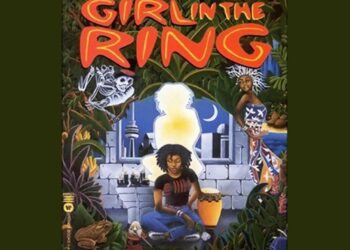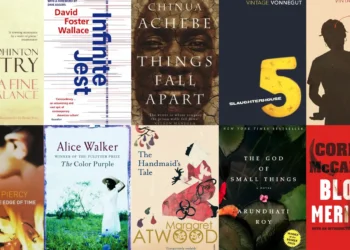What is the short history of Indian writing in English
What is the short history of Indian writing in English-Who is the father of Indian writing in English?,What is the importance of Indian writing in English literature explain?,What are the main aspects of Indian writing in English?,The concise history of Indian writing in English emerges as an engrossing story that traces the development of literary expression against the backdrop of the Indian subcontinent’s rich and varied cultural mosaic. Along this journey, entwined with post-independence goals and colonial legacies, a unique literary tradition has emerged, one that uses the English language bequeathed from a colonial history to address themes firmly ingrained in the Indian environment.
.What is the short history of Indian writing in English
The genesis of Indian writing in English can be traced back to the colonial era when the British East India Company established its foothold in India. English education, along with the dissemination of Western literary influences, laid the foundation for the emergence of a literary tradition. The early writers in English were often exposed to Western literature and education, providing them with the linguistic tools to articulate their thoughts and experiences.
A pivotal figure in this early period was Henry Louis Vivian Derozio, an Anglo-Indian teacher and poet whose works exhibited a nationalist fervor and a critique of social injustices. Derozio’s poetry set the stage for future writers to explore themes rooted in the Indian context using English as their medium. Nevertheless, during this period, the literary discourse often mirrored Eurocentric perspectives and Victorian sensibilities.
Also Read-
- What are the problems of teaching and learning English literature in India
- What is the main challenge of learning English in India
- The Lie of the land : English literary studies in India
The late 19th century witnessed a surge in Indian writers engaging with English literature. Figures like Bankim Chandra Chatterjee, a prominent novelist who wrote in both Bengali and English, attempted to express Indian experiences in the English language. However, the prevailing literary discourse often reflected Eurocentric perspectives and Victorian sensibilities.
The early 20th century marked a significant shift in Indian writing in English as the Swadeshi movement and the quest for national identity fueled the emergence of writers seeking to capture the essence of India in their works. Rabindranath Tagore, the first non-European Nobel laureate in Literature, wrote extensively in Bengali but gained international acclaim for his English works, such as “Gitanjali,” showcasing the potential for Indian writers to bridge cultural divides through English.What is the short history of Indian writing in English
The interwar period saw the rise of a new generation of writers who grappled with the complexities of Indian society and identity. The “Big Three” of Indian English literature—Mulk Raj Anand, Raja Rao, and R.K. Narayan—made significant contributions during this era. Their works, including Anand’s “Untouchable,” Rao’s “Kanthapura,” and Narayan’s “Swami and Friends,” marked a departure from earlier imitative styles, introducing a more authentic Indian voice to English literature.
The mid-20th century witnessed a literary renaissance with the advent of post-independence India. Writers like R.K. Narayan continued to produce influential works, and a new generation of voices emerged, including the prolific Khushwant Singh, who explored the intricacies of Indian society and politics in works like “Train to Pakistan.”
The 1960s and 1970s witnessed a literary renaissance with the advent of the “Midnight’s Children” generation, a term coined by Salman Rushdie, one of the most significant voices in contemporary Indian literature. Rushdie’s “Midnight’s Children” marked a paradigm shift in narrative techniques, blending magical realism with historical events to offer a unique perspective on post-independence India.
The post-Rushdie era saw an explosion of diverse voices and themes in Indian English literature. Writers like Arundhati Roy, Vikram Seth, and Amitav Ghosh garnered international acclaim for their distinct styles and narratives. Roy’s “The God of Small Things,” Seth’s “A Suitable Boy,” and Ghosh’s “The Shadow Lines” showcased the multifaceted nature of Indian experiences, delving into historical, social, and political dimensions.
In recent years, the literary landscape has expanded further with the emergence of writers exploring identity, migration, and the diasporic experience. Jhumpa Lahiri, Chitra Banerjee Divakaruni, and Kiran Desai have contributed immensely to the global recognition of Indian literature. Lahiri’s “Interpreter of Maladies,” which won the Pulitzer Prize for Fiction in 2000, exemplifies the ability of Indian writers to resonate with a diverse, international audience.What is the short history of Indian writing in English
Indian literature in English has also witnessed a surge in genre diversity, with authors venturing into crime fiction, historical fiction, and speculative fiction. Writers like Vikram Chandra, Aravind Adiga, and Amish Tripathi have explored these genres, adding new dimensions to the literary landscape.
The 21st century has brought a fresh wave of voices exploring contemporary issues, social justice, and the intersectionality of identities. Writers like Arundhati Roy continue to engage with political and environmental themes, while younger authors like Juggernaut Books co-founder Chiki Sarkar and journalist Rana Ayyub are contributing to discussions on feminism and investigative journalism.
Conclusion:
In conclusion, the concise history of Indian writing in English unfolds as a captivating narrative that spans the colonial era to the dynamic present, encapsulating a journey of literary evolution, cultural exploration, and narrative diversity. From the early imitative works influenced by Western literature to the emergence of authentic voices expressing the nuances of Indian experiences, the trajectory of Indian English literature reflects the multifaceted nature of a society in transition. The “Midnight’s Children” generation, marked by Salman Rushdie’s seminal work, ushered in a literary renaissance, paving the way for a myriad of voices that continue to resonate globally. The 21st century witnesses a rich tapestry of themes, genres, and perspectives, solidifying the significance of Indian literature in English as a powerful medium for articulating the complexities of cultural identity, societal change, and historical reflection.What is the short history of Indian writing in English
FAQ:
1. Who are the “Big Three” of Indian English literature?
The “Big Three” of Indian English literature are Mulk Raj Anand, Raja Rao, and R.K. Narayan. They made significant contributions in the mid-20th century, offering authentic Indian voices and themes that departed from earlier imitative styles.
2. Which work marked a paradigm shift in narrative techniques in Indian English literature?
Salman Rushdie’s “Midnight’s Children” marked a paradigm shift in narrative techniques, blending magical realism with historical events. This novel, along with Rushdie’s distinctive style, contributed to a literary renaissance in post-independence India.
3. What are some notable works by contemporary Indian English authors?
Contemporary Indian English literature features notable works such as Arundhati Roy’s “The God of Small Things,” Vikram Seth’s “A Suitable Boy,” and Amitav Ghosh’s “The Shadow Lines.” These works explore diverse themes and contribute to the global recognition of Indian literature.
4. How has Indian literature in English diversified in terms of genres?
Indian literature in English has diversified into various genres, including crime fiction, historical fiction, and speculative fiction. Authors like Vikram Chandra, Aravind Adiga, and Amish Tripathi have explored these genres, adding new dimensions to the literary landscape.
5. Which work by Jhumpa Lahiri received the Pulitzer Prize for Fiction?
Jhumpa Lahiri’s “Interpreter of Maladies” received the Pulitzer Prize for Fiction in 2000. This collection of short stories explores the complexities of the immigrant experience and showcases Lahiri’s ability to resonate with a diverse, international audience.
















